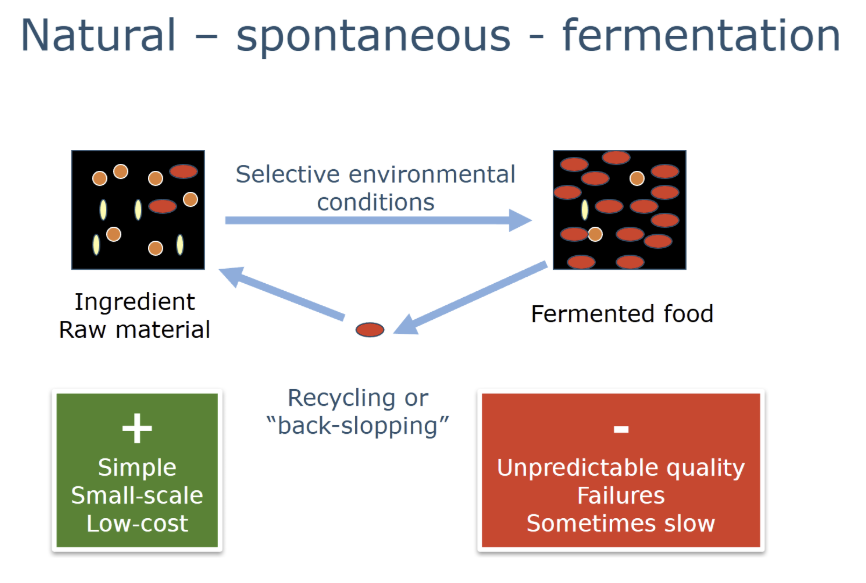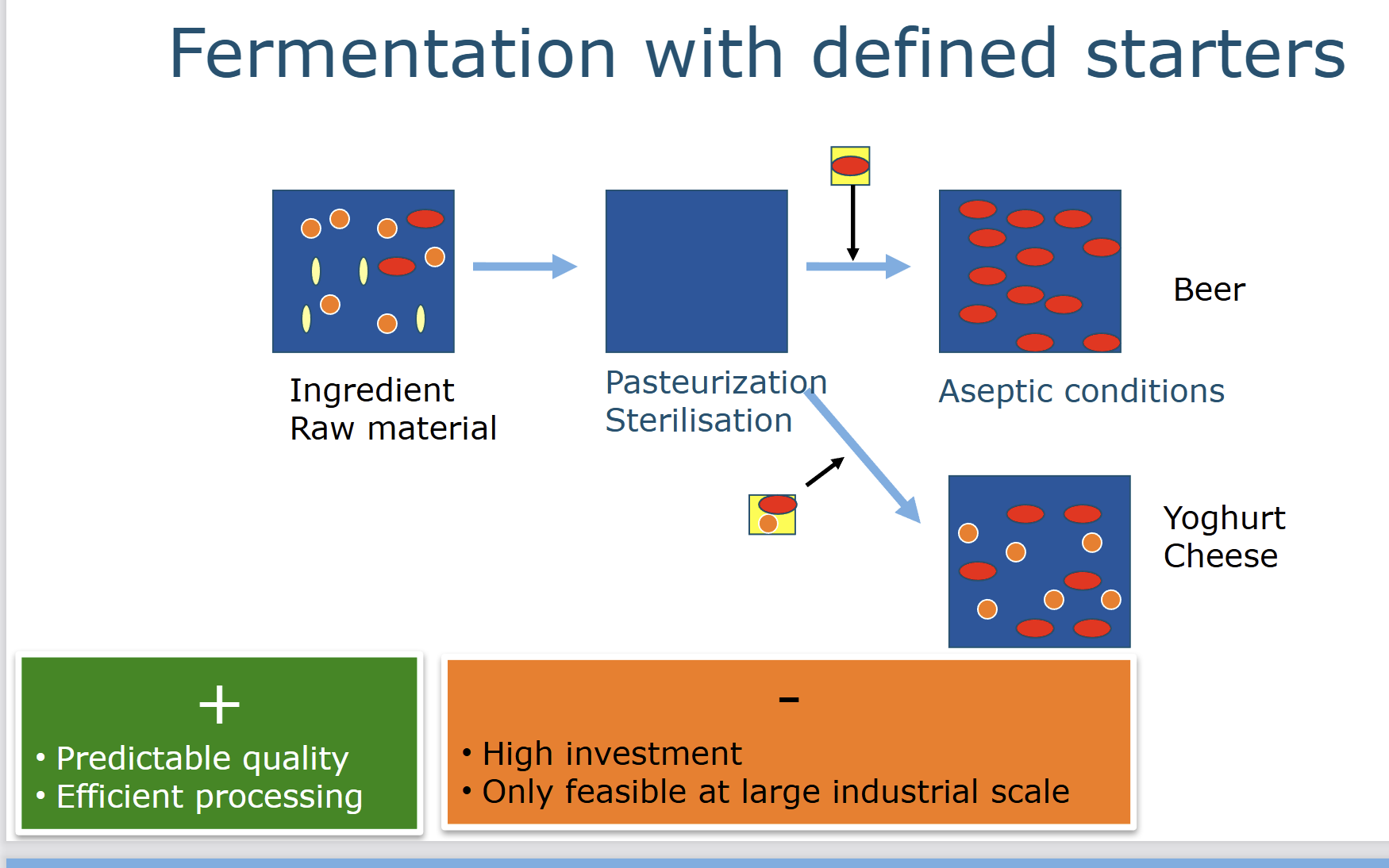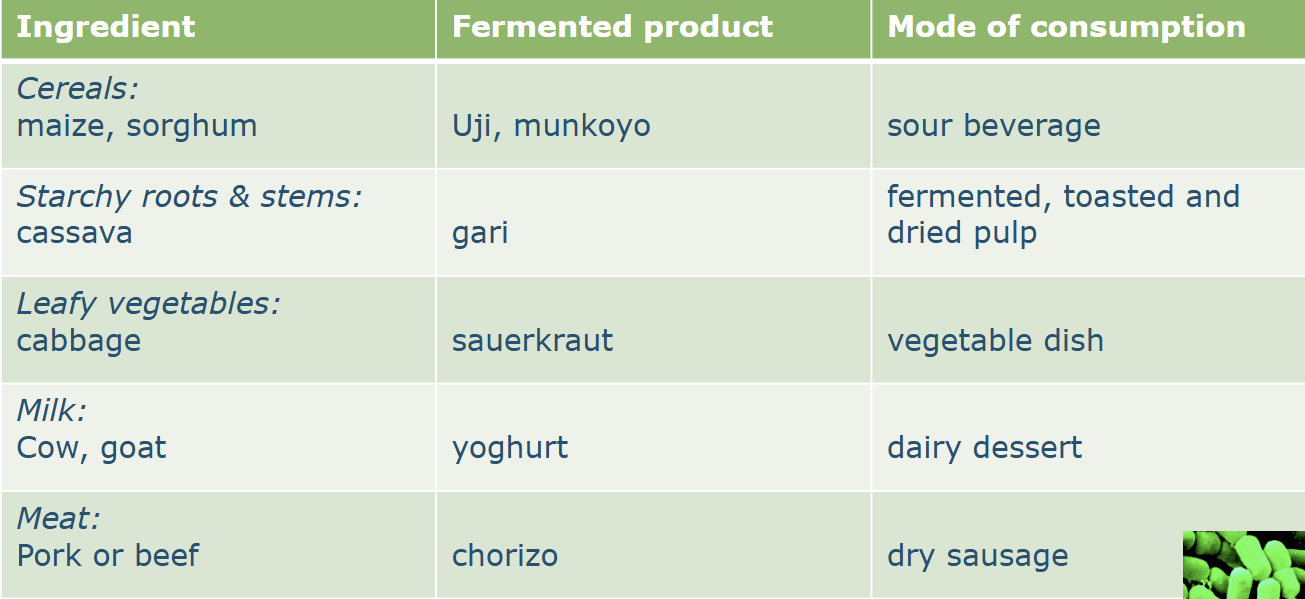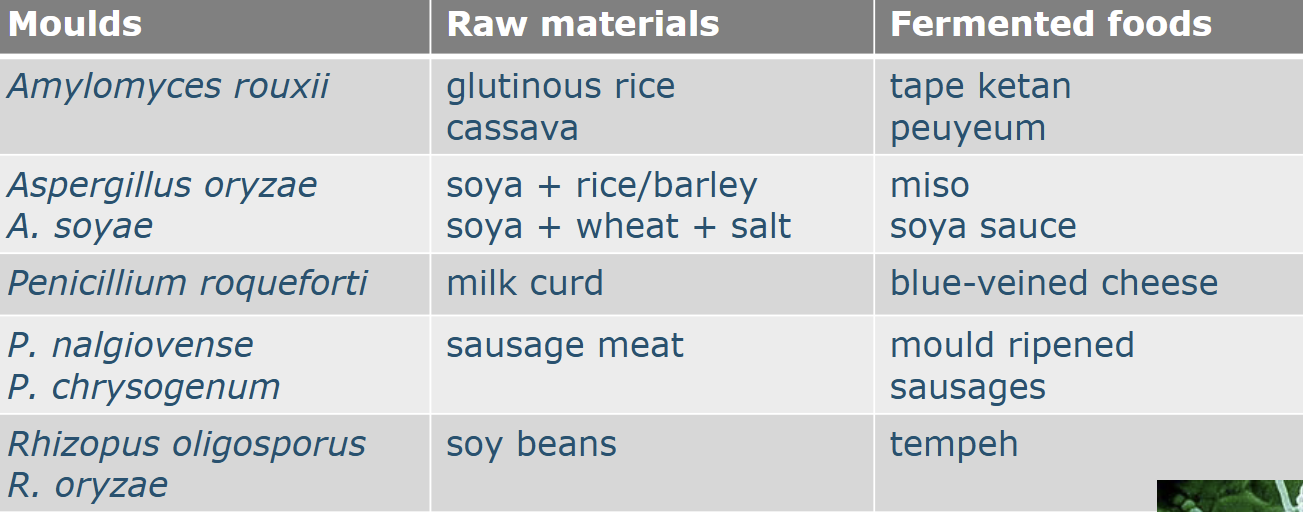Fermentation lecture 1 intro
1/14
There's no tags or description
Looks like no tags are added yet.
Name | Mastery | Learn | Test | Matching | Spaced |
|---|
No study sessions yet.
15 Terms
give the historic , biochemical and simple definition for fermentation
Historical definition (Pasteur, 1822-1895)
● “La fermentation c'est la vie sans l'air”
● Based on studies of alcoholic fermentation using yeast
● Etymology: Fervere (Lat.) = to boil, to leaven
2. Biochemical, bioenergetic definition (Kluyver 1924*):
A process that derives metabolic energy from the oxidation of
organic compounds (mostly carbohydrates) and uses an
endogenous electron acceptor (usually also an organic compound)
Bioprocess driven by microorgansims yielding a product with desirable properties.
does fermentation mean spoilage
no
In a well conducted fermentation process, desirable microorganisms
(“the good”) are abundant/dominant
A spoiled/rotten food product is dominated by undesirable
microorganisms (“the bad” en “the ugly”)
Historic preservation techniques
-Drying of food
- Heating > smoking
-Salting – brining
- Storage in leaves/skins > fermentation
benefits of fermentation
• prevents spoilage,
• increases the microbial safety,
• improves digestibility,
• adds taste and aroma,
• improves textural properties,
• & adds nutritional value.
and also because...
• fermented foods are abundant in human diet!
• it is a sustainable and natural processing technology
Ways to start fermentation process
Ways to start fermentation process
1.Spontaneous fermentation:
Raw material not sterile
Depends on “contaminating” resident microbiota
2. Back-slopping procedure:
addition of sample previous batch
3. Starter cultures:
undefined mixed culture
defined mixed culture
defined single strain starter
describe Spontaneous fermentation
Raw material not sterile
Depends on “contaminating” resident microbiota
Spontaneous fermentation advantages and disadvantages
Problems:
Contamination with:
Pathogenic micro-organisms – safety issue
Spoilage-causing micro-organisms – quality issue
Fermentation rate (speed):
Unpredictable
Conditions not constant: Quality, composition & safety
of final product not guaranteed

describe Starter cultures advantages and disadvantages

what are the workhouses
Lactic acid bacteria LAB
Yeast
Moulds
lab products

yeast

moulds

What is meant by natural fermentation?
Microorganisms responsible for fermentation are present in raw materials.
advanatges and disadvanatges for natural fermentation
Natural fermentation: Microorganisms responsible for fermentation are present in raw materials.
Disadvantages of natural fermentation are irregular reaction course, potential spoilage and possible survival of pathogens
disadvantage of starter cultures
Disadvantages of the use of defined fermentation starters are that these require more complex and expensive techniques.Furthermore, working under sterile circumstances is necessary when defined fermentation starters are used.